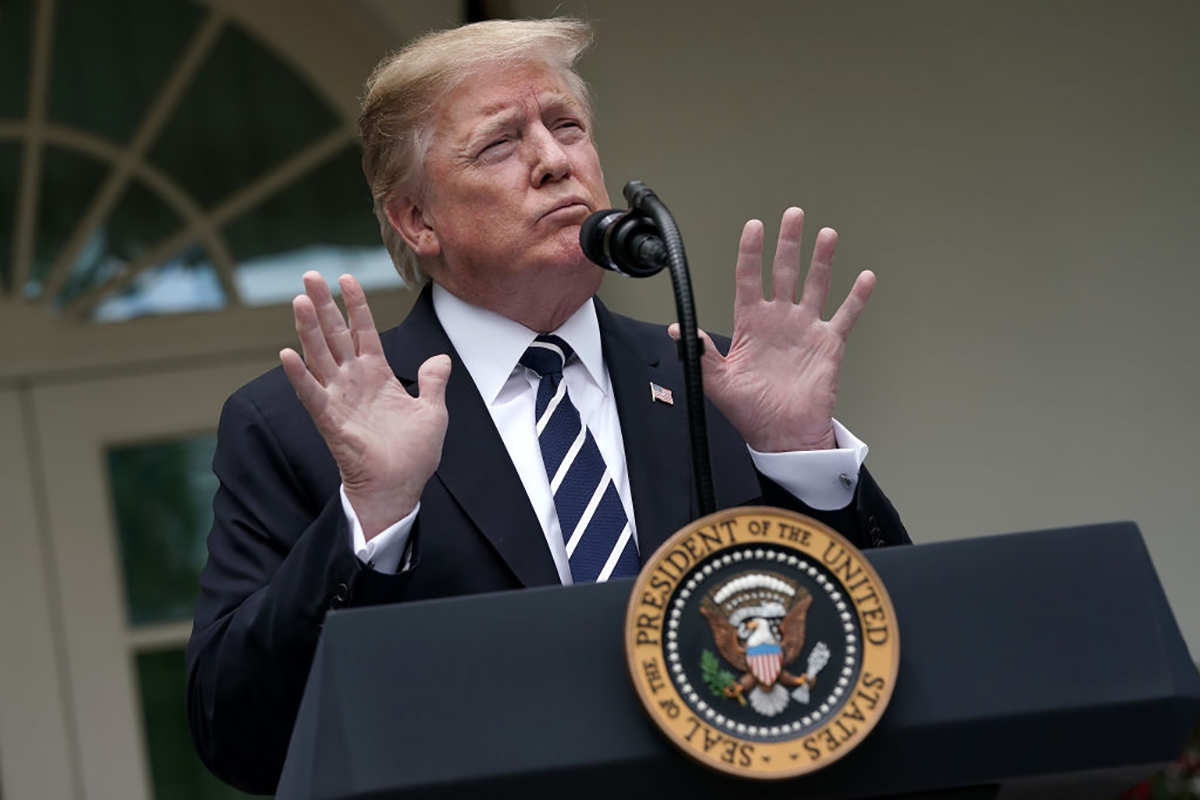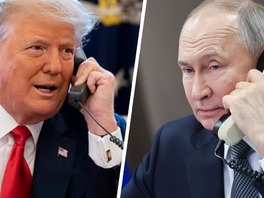Former Special Counsel Robert Mueller, who was appointed to head the investigation on Russia’s intervention into 2016 presidential elections, testified before the House Judiciary and House Intelligence Committees in late July of 2019. Holding its breath, the US waited for a clear answer to one of the most controversial questions to occupy American minds: did President Donald Trump obstruct justice during the investigation?
According to various media, the hearings promised an epic culmination to a political drama, which started with Prosecutor General Barr summarizing the yet unpublished Mueller report in late March. It included the results of a two-year investigation of contacts between Trump’s staff and Russian citizens, as well as the investigation of Russian cyber operations and social media campaigns during the presidential campaign.
According to Prosecutor General Barr, Mueller has found evidence of Russia’s serious intervention into elections but not of Trump’s participation in it. Thus, the Special Counsel has “not reached a conclusion” on whether the current president tried to obstruct justice and hinder the investigation. William Barr stated that he, as the Prosecutor General, consulted with his deputy and concluded that facts presented in Mueller’s report do not give enough grounds to accuse Donald Trump of obstructing justice. The Mueller report does, however, include Don McGahn’s statement on Trump directing him to fire Special Counsel Mueller.
David Dorsen, Former Assistant Chief Watergate Committee Prosecutor and author of the book “Moses v. Trump”, shared his impressions of the Mueller report and the investigation in this exclusive interview.
Were you happy with the results of the Special Counsel Mueller’s report? Why yes or no?
I had mixed feelings. I cannot quarrel with the investigation or the details of the report, but I think he could have reached conclusions where he did not. His report should have made clear that Trump acted improperly and probably criminally. It should have said that Trump did not cooperate with the investigation. Mueller had the power to do that under his mandate.
What do you think of Attorney General Barr’s handling this report?
Barr acted improperly. He distorted the report, which clearly did not exonerate Trump. He should not have characterized the report. He was partisan and allowed Trump further to distort the report. He cannot be faulted for not releasing the whole report, but that did not give him the right to misrepresent the serious negative findings the report stated.
Do you think Trump should have been called in for an interview?
Mueller said that fighting to interview Trump would have delayed issuing his report, which was a difficult trade-off. I think he should have tried to force Trump to testify and issued his report only if the fight would have pushed the release of the report beyond the summer of 2020. Alternatively, Mueller should have issued his report as an interim report, necessitated because Trump refused to cooperate.
Do you think McGahn’s testimony in court could start a "Saturday Night Massacre" for Trump? What could be the trigger in this investigation?
No. Only if Trump had fired Mueller would that have happened. The impact of the firing could have hurt Trump terribly, but McGahn's testimony, whether before Congress or in a court proceeding, will have a limited effect.
Where do you see this situation going? Do you think it can substantially affect Donald Trump’s 2020 presidential run?
Because of Barr's action and Mueller's poor performance in his testimony, I don't think the report will have the impact it should have. Some of the undecided will probably be influenced, but not as many as should have been.
Even though it is too early to judge, the polls suggest democratic candidates are leading by rather small margins. What do you think could influence public opinion if Mueller report does not?
This is a difficult question. I think the most likely event to help the Democrats would be a self-inflicted wound by Trump. If he said something particularly outrageous, that would have an effect. Also, I think the trade war has the potential of losing Trump support among his base, particularly in the farm belt in the middle of the country. Another possibility is that there is a recession, although Trump will blame everyone else. If the trade war with China continues badly, that could hurt, too.
With all the scandals and investigations surrounding Trump, do you think another Republican could challenge him? If yes, whom would you see as a figure standing a chance?
No. Trump's base is too loyal for there to be a serious challenge to Trump. Trump has taken over the Republican Party and has demonstrated that he will be ruthless in removing challengers.
What would you say is the Trump appeal that keeps attracting voters despite obstruction of justice, scandals, hate rhetoric etc.?
Several things. Many Americans -- like people elsewhere -- are intolerant and feel victimized. Trump has managed to become the idol of most of them. Also, many people who are happy with Trump's tweets and racist comments agree with him on issues, including Catholics and fundamental Protestants who are vehemently against abortions, right to die, affirmative action, and others. Moreover, the strong economy is leading many to support Trump even though they may have reservations.
Do you think an impeachment scenario is likely to play out?
No. It is too divisive and lacks the broad support necessary. Also, it is late in the term to begin hearings. People will be voting in five months. Another point is that Pence would not be an improvement from the Democrats' point of view. There is no chance that the Senate would convict Trump. Impeachment and an acquittal would be a negative for the Democrats.
Reflecting on your rich experience, how would you compare this slow burn Trump investigation to Watergate -- in terms of public opinion, potential finale and lessons learned?
Difficult question. The Watergate scandal was simpler and linear. The Senate Watergate Committee, on which I served, laid out the entire scandal. The present scandal is multi-layered. Another major difference is that Congress and the public are much more partisan today. In Watergate, there were many Republicans in Congress and elsewhere who were willing to judge the case on the merits. The case against Nixon was built gradually, so people were convinced as more evidence developed against him. The present scandal is only about the president, so people who supported him will not change. In fact, many people voted for Trump for the same reasons that the Democrats are seeking impeachment.





